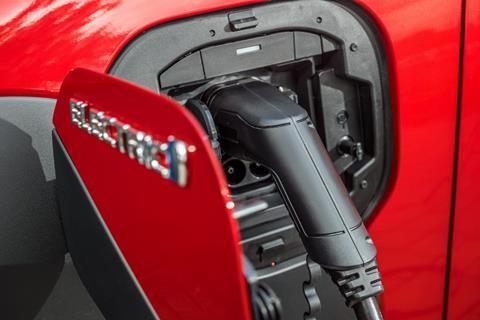
Toyota has unveiled plans to improve energy densities and performance of battery electric vehicles (BEVs).
Its new BEV factory aims to roll out next-generation BEVs in 2026 as part of its ‘Let’s change the future of cars’ plan.
The car giant said it is evolving batteries with new technologies to meet customer expectations.
It said liquid lithium-ion batteries will gain enhanced performance through improvement of energy density in square batteries. In addition, by using the bipolar structure that has been developed for hybrid electric vehicles (HEVs) in BEVs, it will expand its line-up and provide customers with a range of options, from low-cost popular batteries to those designed for higher performance. Furthermore, all-solid-state batteries will enter the practical application phase for use in BEVs.
Toyota said the next-generation BEV, to be introduced in 2026, will have a cruising range of 1,000km (approx 620 miles), which will be achieved through higher efficiency, in areas such as aerodynamics and weight reduction. At the same time, costs will be reduced by 20% compared to the current bZ4X model, and quick charging will take 20 minutes or less.
In parallel with development of the ’popular’ battery version, a high-performance battery that combines a bipolar structure with a high nickel cathode to achieve further advances will be put to practical use in 2027-2028.
Meanwhile, Toyota continues to champion hydrogen as an important fuel in its efforts to reduce CO2 emissions and achieve the aim of carbon neutrality.
It has developed a trial hydrogen-engine vehicle, licensed to be driven on public roads in Japan. The car giant said it will accelerate the development of hydrogen-engine vehicles for commercialisation, as a new option for contributing to carbon neutrality.
It is promoting external sales of fuel cells, using the Mirai’s hydrogen units. It said it had received offers for 100,000 units by 2030, most of them for commercial vehicles.
To respond to rapid changes in the market, it is establishing the Hydrogen Factory in July this year. The Hydrogen Factory will establish local bases too, mainly in Europe and China.
However, the car giant said the price of hydrogen is too high so to promote the widespread use of hydrogen, it will continue to work with its partners to contribute to the production, transportation and usage of hydrogen.
































